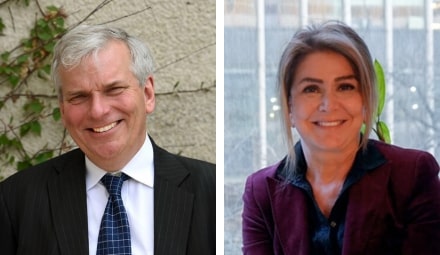› SPC Adult Education Welcomes Guest Speakers Philip Stoltzfus & Rima Zaitoon
Sunday, April 7 / 9:00 am (in the Study)
› SPC Adult Education Welcomes Guest Speakers Philip Stoltzfus & Rima Zaitoon
Sunday, April 7 / 9:00 am (in the Study)
he SPC Adult Education Committee is excited to welcome guest speakers, Philip Stoltzfus and Rima Zaitoon, to the 9:00 am discussion on Sunday, April 7 in the Study. Philip and Rima will engage the group in discussion about how the Presbyterian church transformed education and healthcare in Lebanon and the region, sharing specifically the story of the Lebanon American University (LAU), an historic institution that retains an important connection to the Presbyterian church globally. They will highlight the important legacy of service and values inherent in this missional commitment by the church, and which can be a deep source of pride to Presbyterians today. All are encouraged to join in this discussion at 9:00 am. Philip and Rima will also join us in worship that Sunday and will be available after worship for further conversation.
About Philip Stoltzfus & Rima Zaitoon
Philip Stoltzfus is Chairman of the Board of Trustees of LAU and is the grandson of William A Stoltzfus who was President of Beirut College for Women from 1937 to 1958. William and his wife Ethel were members of Swarthmore Presbyterian Church following their return from Lebanon. Philip is also the brother of Winnie Host, a currently serving Elder at Swarthmore Presbyterian. Philip will be joined by Rima Zaitoon, LAU VP for Global Advancement based in New York.
Founded by Presbyterian missionaries in 1924, Lebanese American University is a New York chartered institution of higher education operating in Lebanon. Under its early guise as Beirut College for Women, it was the first women’s college in the Middle East, before turning co-ed in 1973. Over the 100 years of its existence, LAU has grown from a handful of students to 8,700 women and men studying in 7 schools across two campuses, while serving the community with two major University Medical centers. In deeply troubled times, LAU remains a trusted institution in a country whose population has lost all faith in institutions.

